COVID-19 and Diabetes: Connecting the Dots
Discovery
Basic science and clinical investigations converge to offer answers.

Dr. Robert Schwartz was catching up on the news while waiting for a flight in late February 2020 when he realized the new virus racing through China was likely already gaining a foothold in the United States.
“From the airport, I started calling some of my colleagues saying, ‘Look, I think this is going to become a global pandemic,’” says Dr. Schwartz. “‘We need to reorient our research toward SARS-CoV-2.’”
Dr. Schwartz, whose lab uses tissue engineering to study infectious diseases that affect the liver, reached Dr. Shuibing Chen. The two researchers, who are frequent collaborators, decided to team up again to study how various human cell types responded to SARS-CoV-2 infection by using cell mimics developed from human pluripotent stem cells. “We were trying to ask a very simple question,” Dr. Schwartz says. “What are the cell types that are susceptible to infection by SARS-CoV-2?”
Along with cells from the lungs, heart, liver, gut and other organs, Dr. Chen included pancreatic beta cells in the study because they relate to her lab’s work, which uses stem cell models to study diabetes progression. “We got very surprising results,” Dr. Chen says. “That is, the pancreatic beta cell, which is a major cell type secreting insulin,
can be infected by SARS-CoV-2.”
This major finding, reported in the journal Cell Stem Cell, was an early indication that COVID-19 infection could trigger diabetes. “This is a good example of how a very surprising basic science discovery eventually leads to something highly clinically relevant,” Dr. Chen says. “[Providers could] pay more attention to blood glucose levels and adjust their clinical treatment based on the risk.”
But, despite the breakthrough, at that point, the full picture of the diabetes-COVID-19 connection was far from clear.
Filling ‘Giant Gaps’ in Knowledge
Early in the pandemic, doctors were grasping for answers for patients with diabetes who were hearing that COVID-19 might pose a special risk to their health, says Dr. Laura Alonso.
“We were all aware of the giant gaps in knowledge,” says Dr. Alonso, an endocrinologist whose lab studies pancreatic beta cells, which produce and release insulin to regulate blood sugar levels. “There was motivation on all sides to try to understand what was going on.”
While Drs. Chen and Schwartz were finding links in the lab, clinicians treating the influx of COVID-19 patients were beginning to formulate their own research questions about why the novel coronavirus seemed more severe in certain patient populations. Dr. James Lo noticed that COVID-19 patients without a history of type 2 diabetes were being treated in intensive care for “sky high” blood glucose levels.
“I study obesity and diabetes,” says Dr. Lo, recalling the weeks in the spring of 2020 when he halted his lab work and treated COVID-19 patients in the ICU, “and now I’m seeing this respiratory illness with profound impacts on glucose metabolism.”
To understand how SARS-CoV-2 infection caused diabetes, Dr. Lo assayed blood samples taken from critically ill COVID-19 patients who were early in their hospital admission to determine their levels of glucose, insulin and other hormones that control blood glucose levels. “Does the virus specifically attack certain cells that can lead to type 1 or type 2 diabetes?” wondered Dr. Lo.
Dr. Lo and his team found that the insulin-sensitizing hormone adiponectin, which is secreted by fat cells into the blood to help regulate blood glucose, was lower in patients infected with COVID-19. (He also found that many of these patients had a predominantly insulin-resistant diabetes phenotype, meaning they made insulin, but their body wasn’t responding well to it.) To understand why adiponectin was lower in those patients — Was the virus lowering hormone levels? Or were patients who already had lower adiponectin levels more susceptible to COVID-19? — Dr. Lo turned to Dr. Schwartz’s group. The two joined forces to better understand the effect of SARS-CoV-2 on fat cells.
“After we got the indication that something might be going on in the fat, we were able to quickly collaborate with Dr. Schwartz to answer that question,” Dr. Lo says. “The speed with which this was done speaks volumes to how everyone thought it was important.”
Dr. Schwartz’s team developed a preclinical model that found SARS-CoV-2 did indeed infect fat cells and reduce levels of adiponectin. “We can [now] answer this chicken-egg question” that SARS-CoV-2 lowered the hormone level, rather than striking patients with already lower levels, Dr. Lo says. Not only was COVID-19 infecting pancreatic beta cells, as Drs. Chen and Schwartz found, but it was also affecting fat cells. “This is an alternative hypothesis for how COVID can cause new diabetes or worsen pre-existing disease.”
A ‘Double Whammy’ for Patients
Though multidisciplinary collaboration was already common at Weill Cornell Medicine, Dr. Schwartz says the group effort around COVID-19 and diabetes research was unlike any other. “There wasn’t just one person who held the torch,” he says. “We all had varying contributions at different times to pull the story together to understand what in the world was going on in this new disease, and what was going on in our patients.”
While Weill Cornell Medicine’s basic scientists were uncovering the ways COVID-19 infection could lead to diabetes, clinical researchers set out to understand how diabetes and obesity influenced COVID-19 patient outcomes.
In a study published in the journal Obesity, to which Dr. Alonso contributed, medical students pulled data from the charts of some 3,500 Weill Cornell Medicine patients hospitalized in Manhattan and Queens between March and mid-May 2020. They found that the patients with diabetes (32 percent) and with obesity (36 percent) were more likely to be admitted to intensive care, to need mechanical ventilation and to die in the hospital.
“Diabetes and obesity were both independently associated with these adverse outcomes,” says Dr. Alpana Shukla. “Having both of these conditions was like a double whammy.”
A separate collaboration between Dr. Shukla, Dr. Alonso, and others, published in the Journal of Diabetes and its Complications, focused specifically on patients with diabetes who were hospitalized with COVID-19 infection. In a cohort of more than 1,100 patients, the researchers found that older age, male gender, Asian race, and obesity were all associated with an increased risk of severe COVID-19 in patients with diabetes. “An understanding of our findings is critical for improving outcomes,” Dr. Shukla says. “This helps inform how we should be approaching patients and recognizing a particular population that might need more intensive care.”
Reversing Long-Term Damage
Research on the link between diabetes and obesity and COVID-19 is ongoing at Weill Cornell Medicine. “There really has been a massive redirection of effort toward understanding how SARS-CoV-2 infection impacts the biology of the human body,” Dr. Alonso says.
Dr. Lo is endeavoring to determine the long-term consequences of the SARS-CoV-2 infection of fat cells and what it means for patients. Dr. Chen and Dr. Schwartz are developing models to examine how immune cells triggered by a COVID-19 infection could cause long-term organ tissue damage in people who have recovered from the virus.
“I hope our work can help bring people’s attention to the long-term severity of COVID,” Dr. Chen says. “Diabetes is definitely a very important component of long COVID.” Dr. Shukla expects that scientists will also study the long-term health impact of COVID-19 infection on people with obesity.
Dr. Schwartz says he hopes the research coming out of Weill Cornell Medicine will eventually help contribute to the development of therapeutics that would reverse the virus’s long-term damage. “Obviously COVID has been an absolutely disastrous event, both for public health and global society,” he says. “But there are opportunities to hopefully use the information that we learned to better human health — not just for COVID, but for other diseases.”
Fall 2022 Front to Back
-
From the Dean

A Message from the Dean
As an academic medical center, our tripartite mission is what drives us forward: we thrive on providing world-class care to our patients, making groundbreaking discoveries that are changing the future of medicine, and teaching the health care leaders of tomorrow. -
Features
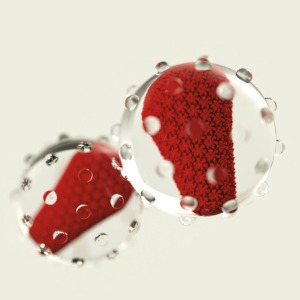
The Search for a Cure
Weill Cornell Medicine scientists aim to liberate those living with HIV by subduing the virus for good. -
Features

Evasive Action
Could interrupting the evolutionary process of mutating cells hold the key to vanquishing cancer? Researchers led by Dr. Dan Landau are on the case. -
Features

New Frame of Mind
Psychiatrist and neuroscientist Dr. Conor Liston (M.D. ’08, Ph.D.) and his team are poised to upend the way mental health disorders are diagnosed and treated. -
Notable

New Cancer Director
Internationally acclaimed medical oncologist Dr. Jedd Wolchok, whose innovations in immunotherapy revolutionized melanoma treatment, was recently recruited as the Meyer Director of the Sandra and Edward Meyer Cancer Center at Weill Cornell Medicine. -
Notable

3 Questions
Dr. Jay Varma, director of the new Center for Pandemic Prevention and Response, explains why an interdisciplinary approach is critical. -
Notable

Overheard
Weill Cornell Medicine faculty members are leading the conversation about important health issues across the country and around the world. -
Notable

Notable News Briefs
Faculty appointments, honors, awards and more — from around campus and beyond. -
Notable

Dateline
In the global scientific effort to understand vaccine and natural immunity to SARS-CoV-2, Weill Cornell Medicine’s location in Qatar, a country of only a few million people, has been making an outsized contribution. -
Grand Rounds

Chiari Malformation
When is Surgery Necessary? -
Grand Rounds

3 Questions
Dr. Susan Loeb-Zeitlin, who worked with a multidisciplinary team to launch the new Women’s Midlife Program, shares insights about making menopause manageable. -
Grand Rounds

Social Impediments to Health
The murder of George Floyd and the resulting national reckoning on race, along with the disproportionate impact of COVID-19 on communities of color, galvanized creation of the Anti-Racism Curriculum Committee at Weill Cornell Medicine. -
Grand Rounds

Grand Rounds News Briefs
The latest on teaching, learning and patient-centered care. -
Discovery

COVID-19 and Diabetes
Basic science and clinical investigations converge to offer answers. -
Discovery

Development of Schizophrenia
Multiple changes in brain cells during the first month of embryonic development may contribute to schizophrenia later in life. -
Discovery
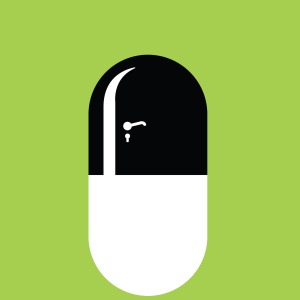
Findings
The latest advances in faculty research, published in the world’s leading journals. -
Alumni
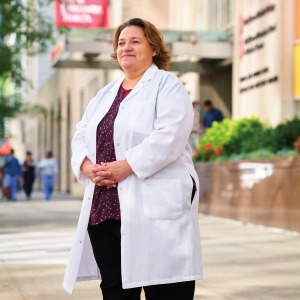
Profiles
From taking the lead in newborn medicine to forging critical connections to move research from the bench to the bedside, our alumni are making an impact. -
Alumni

Notes
What’s new with you?
Keep your classmates up to date on all your latest achievements with an Alumni Note. -
Alumni

In Memoriam
Marking the passing of our faculty and alumni. -
Alumni
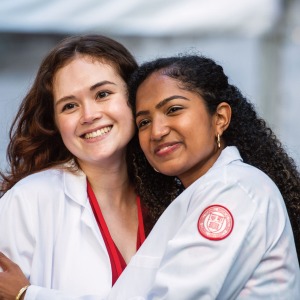
Moments
Marking celebratory events in the lives of our students, including Match Day, the White Coat Ceremony and Graduation. -
Second Opinion
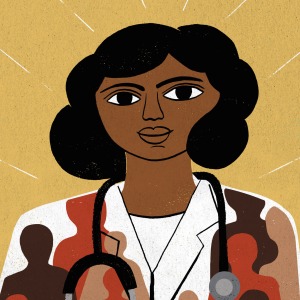
A New Lens
What’s one way that medical education must change to better address health inequities? -
Exchange
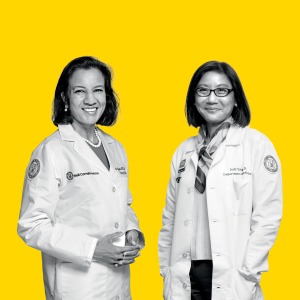
Pivot Points
Two women leaders at Weill Cornell Medicine whose professional paths have connected discuss the power of mentorship — for themselves and other women in academic medicine. -
Muse

Two Forms of Truth
Dr. Laura Kolbe, whose poetry has garnered notable honors, talks candidly about how her writing helps her build a bridge to her work as a clinician. -
Spotlight

Building Connections
Dr. Kathleen Foley (M.D. ’69) has been bringing people together throughout her expansive career as a specialist in pain management and palliative care for cancer patients.